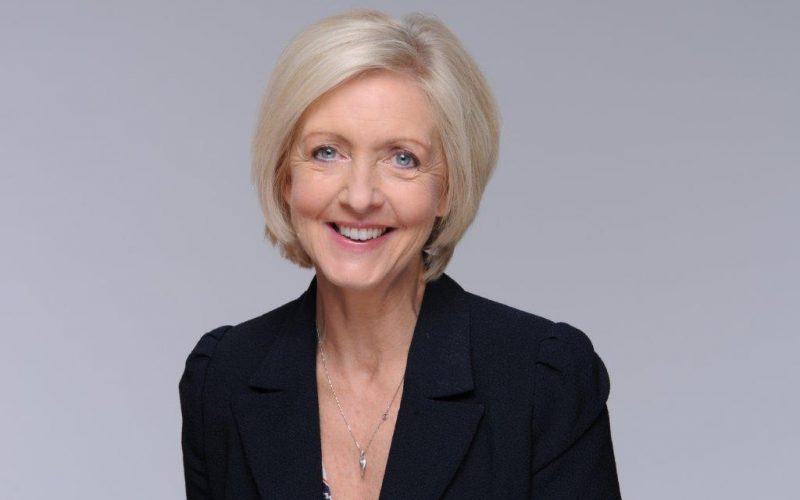Published on: March 6, 2020 at 1:25 PM
International Women’s Day is an annual reminder to recognise and celebrate achievements in addressing gender equality. Of course, there is work to be done, but there are also great strides being made in taking action for equality and reaching the ultimate IWD goal of a ‘gender equal world.’
I’m particularly aware of and connected to achievements in the energy and utilities sector, in which I have long championed greater female representation and gender equality. As women, we bring our own set of complementary skills, our unique experiences and expertise into the workplace, which is invaluable – and what’s more, it’s good for business.
If I told you that, in the UK energy and utilities sector, about 1 in 6 employees are female, that’s just 17%*, compared to an average of 1 in every 2 employees across the economy, you might not be surprised. It’s a sector that has been male dominated for generations. Only 4.5% apprenticeship starts in the sector are female candidates and less than 1% skilled trade roles are occupied by women. This status quo needs to change.
At Energy & Utility Skills we are working hard to impact change by facilitating sector initiatives such as the Energy & Utility Skills Partnership, the Inclusion Commitment and our Workforce Renewal Skills Strategy: 2020. Through the Partnership, we’re delivering against the sector’s Inclusion Commitment which 42 leading companies have signed up to. Our members have pledged to attract and recruit more diverse talent into our sector, better representing our local communities. It is vital that our workforce mirrors those who we serve 24/7, ensuring solid and balanced decision-making and better business practices.
I passionately believe that greater commitment to diversity and attracting more females into the industry is not only vital to society, it is a critical factor in achieving the UK government’s commitment to Net Zero emissions by 2050. Our sector is at the heart of the country’s commitment to a zero-carbon future, and it is the people we are recruiting now that will drive the change.
Today’s young recruits will design, develop, build and operate the infrastructure we need to deliver cleaner energy for tomorrow, and they will be our industry leaders in 2050. Our future workforce should be gender-balanced, representative of its communities and invested in its economic and environmental goals.
Research shows that diversity is also a competitive differentiator. This is particularly true when women are represented in senior, decision-making positions, where gender balance represents different viewpoints, influences and motivations of communities.
Human capital is one of the most important assets of any organisation’s ability to function at its utmost potential. It is essential that leadership within organisations, has a diverse representation of people, including women, at board and senior management level.
Businesses with a healthy balance of men and women are 15** percent more likely to outperform their competitors, and companies that commit to diverse leadership are more likely to achieve success.
At Energy & Utility Skills we also believe we need to redress the composition of our industry leadership. Energy & Utility Skills has welcomed an initiative that aims to increase the number of women in middle and senior management in the energy industry. The Energy Leaders’ Coalition of chief executive officers from eight leading industry employers have all pledged to increase female access to senior roles within their companies. The coalition which includes Skills Partnership members National Grid, Scottish Power and SSE, will meet to review progress, share best practice and plan improvements.
We’ve already seen success in one of member organisations, SSE***, where a commitment to equality and diversity has delivered a multiple return on investment – or ‘return on inclusion’ (ROI). Every £1 invested by SSE between 2014 and 2017 generated a £4.52 ROI. By refocusing its diversity and inclusion strategy for 2017-2020, it estimates potential to achieve £15-worth of value for every £1 invested as the organisation becomes more focused on creating a truly inclusive workplace.
So, the evidence is clear: women are better for business. International Women’s Day is a powerful initiative that reinforces the contribution that women the world-over make to economic and environmental development. With energy and utilities so intrinsically linked to both, I remain committed to bringing diversity and inclusion into the workplace.
All organisations in the energy and utilities sector must continue to work together to ensure that gender diversity in the workforce is a given and Energy & Utility Skills will continue to support this with our members.
Article by Jan Ward, Chair of Energy & Utility skills
References to research:
*https://www.euskills.co.uk/diversity-inclusion-sector-statistics/
**https://www.telegraph.co.uk/connect/better-business/business-sustainability/business-benefits-diversity-inclusion/
***https://sse.com/media/481527/DiversityReport_FINAL.pdf
